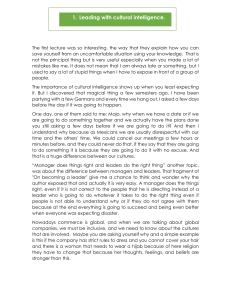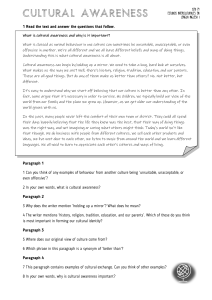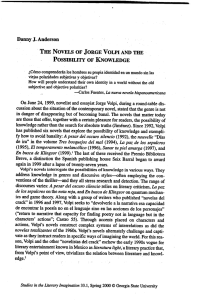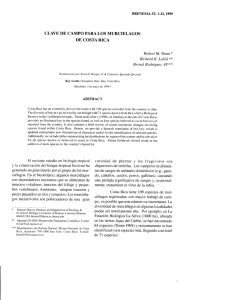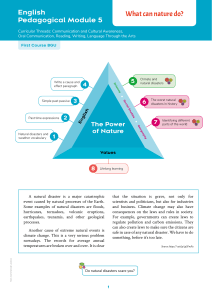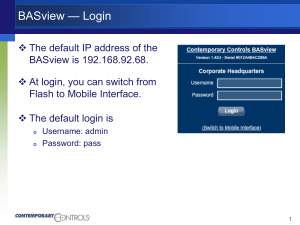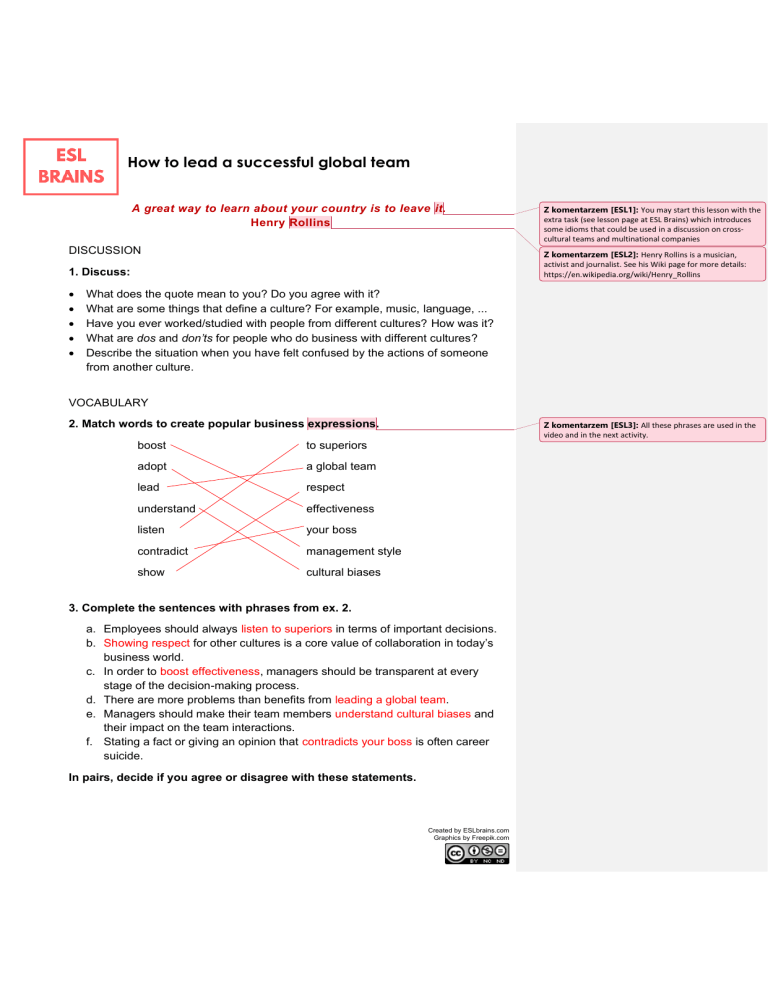
How to lead a successful global team A great way to learn about your country is to leave it. Henry Rollins DISCUSSION Z komentarzem [ESL2]: Henry Rollins is a musician, activist and journalist. See his Wiki page for more details: https://en.wikipedia.org/wiki/Henry_Rollins 1. Discuss: • • • • • Z komentarzem [ESL1]: You may start this lesson with the extra task (see lesson page at ESL Brains) which introduces some idioms that could be used in a discussion on crosscultural teams and multinational companies What does the quote mean to you? Do you agree with it? What are some things that define a culture? For example, music, language, ... Have you ever worked/studied with people from different cultures? How was it? What are dos and don’ts for people who do business with different cultures? Describe the situation when you have felt confused by the actions of someone from another culture. VOCABULARY Z komentarzem [ESL3]: All these phrases are used in the video and in the next activity. 2. Match words to create popular business expressions. boost to superiors adopt a global team lead respect understand effectiveness listen your boss contradict management style show cultural biases 3. Complete the sentences with phrases from ex. 2. a. Employees should always listen to superiors in terms of important decisions. b. Showing respect for other cultures is a core value of collaboration in today’s business world. c. In order to boost effectiveness, managers should be transparent at every stage of the decision-making process. d. There are more problems than benefits from leading a global team. e. Managers should make their team members understand cultural biases and their impact on the team interactions. f. Stating a fact or giving an opinion that contradicts your boss is often career suicide. In pairs, decide if you agree or disagree with these statements. Created by ESLbrains.com Graphics by Freepik.com How to lead a successful global team VIDEO & DISCUSSION 4. Read the text below and answer the questions. Globalization has led to the rapid connection of internationally based employees from all levels of multinational companies. Where once an employee might have been expected to primarily collaborate with colleagues from his own country, today many people are part of global networks connected with people scattered around the world. Yet most managers have little understanding of how local culture impacts global interaction. Even those who are culturally informed, travel extensively, and have lived abroad often have few strategies for dealing with the cross-cultural complexity that affects their team’s day-to-day effectiveness. The Culture Map provides a new way forward, with vital insights for working effectively and sensitively with one’s counterparts in the new global marketplace. Source: https://www.erinmeyer.com/book/ • • What is the book about? What kind of problems might the manager face when leading an international team? 5. Watch the video and answer questions given below (https://youtu.be/DgbU7pP5QRc) a) What do the British say about the French? that they're always late, really disorganized, always a chaotic a little bit b) What do Indians say about the French? that the French were overly structured, inadaptable, they were so focused on the punctuality that it left them inflexible c) What do Americans say about Malaysians? that they are shy and they have nothing to contribute d) What do Malaysians say about Americans? they are constantly interrupting each other and there's never a space for Malaysians to get their voice in edgewise e) What do Mexicans say about the Dutch? managing Dutch people is absolutely incredible because they do not care at all that I'm the boss I go into these meetings I have my strategy I'm trying to roll out my plan but they're contradicting me they're challenging me they're taking my ideas in other directions sometimes Created by ESLbrains.com Graphics by Freepik.com How to lead a successful global team 6. Discuss: • • • • • What are your experiences in terms of working with people from different cultural backgrounds? How is your culture perceived by others? How should managers deal with a global team? How to make all team members share ideas and contribute openly during meetings? Why may a global team have greater potential than a classic monocultural team? Created by ESLbrains.com Graphics by Freepik.com
